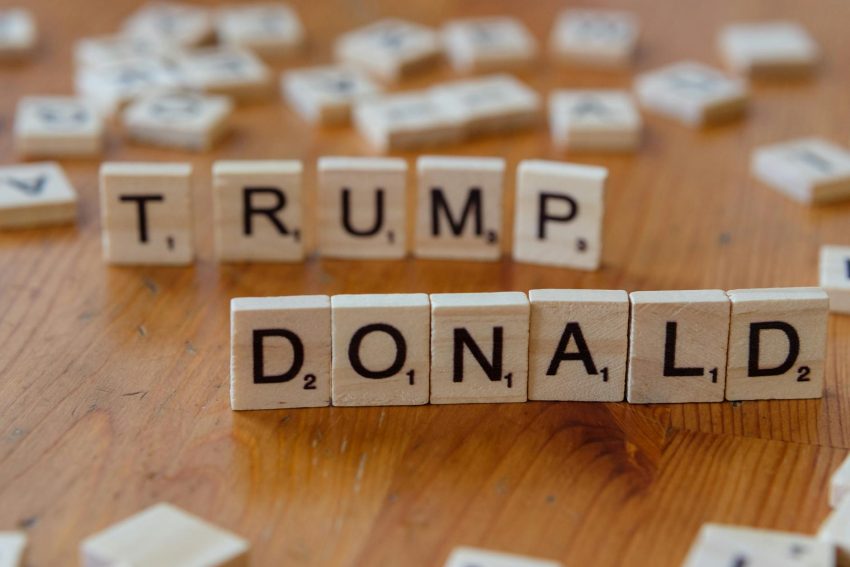In an age marked by geopolitical tensions and the specter of armed conflict, understanding how different administrations approach foreign relations becomes crucial. This blog post explores the dynamics of Trump Foreign Policy, which emphasizes a unique blend of diplomacy, negotiation, and strategic deterrence. Throughout his presidency, Trump achieved several notable diplomatic milestones, steering the nation away from potential military conflicts. However, his approach was not without criticism; many analysts question the sustainability and effectiveness of his methods regarding war avoidance. By examining the principles behind Trump’s foreign policy, his significant diplomatic achievements, and the critiques that followed, we can gain valuable insights into his legacy of peacekeeping in tumultuous times.
The Principles of Trump Foreign Policy
The bold principles of Trump’s foreign policy were fundamentally characterized by a focus on national sovereignty, economic interests, and a shift towards an “America First” ideology. This approach emphasized the need for the United States to prioritize its own citizens and national interests above global considerations. One of the core tenets was a desire to renegotiate trade agreements that were perceived as unfavorable, aiming instead for deals that would bolster American jobs and industries. By making trade a central pillar, the administration aimed to assert the U.S. position in global economics while also discouraging practices deemed exploitative by other nations.
Additionally, building strong bilateral relationships took precedence under Trump’s leadership. He often favored one-on-one negotiations with leaders from key nations over participation in multilateral organizations, believing this approach fostered more direct and actionable diplomacy. For example, his relationship with North Korea’s leader Kim Jong-un, marked by unprecedented summits, illustrated this principle of direct engagement over traditional diplomatic channels.
A further notable principle was the emphasis on military strength. The administration advocated for a potent military presence as a deterrent against adversaries, suggesting that showing strength would lead to stability and peace. However, this was coupled with an aversion to prolonged military involvement in foreign conflicts. Trump regularly questioned the efficacy of ongoing military engagements, advocating for troop withdrawals from areas such as Afghanistan and Syria, aligning with his commitment to end what he described as “forever wars.”
Lastly, principles of realism and pragmatism often guided decision-making in terms of international relations. The administration was willing to work with adversaries like Russia and Iran when it was deemed beneficial for America’s strategic interests, showcasing a flexible approach to diplomacy. These principles combined created a framework aimed at maintaining peace and avoiding military entanglements, ultimately striving for a posture that was both assertive and non-interventionist.

Key Diplomatic Achievements Under Trump
During his presidency, Trump Foreign Policy emphasized a unique diplomatic strategy that prioritized direct engagement and negotiation over conflict. One of the hallmark achievements of this approach was the historic summit with North Korean leader Kim Jong-un in 2018. This unprecedented meeting marked the first time a sitting U.S. president had conversed directly with a North Korean leader. Although the outcomes related to denuclearization were mixed, the act itself represented a significant shift from the long-standing tensions that defined U.S.-North Korea relations.
Another notable accomplishment was the U.S.-Mexico-Canada Agreement (USMCA), which replaced the North American Free Trade Agreement (NAFTA). The negotiations surrounding this agreement focused not only on trade but also on labor rights and environmental protections, thereby fostering economic stability in the region. By presenting a more America-first approach, Trump aimed to bolster domestic employment while reducing trade deficits, demonstrating that economic diplomacy can play a critical role in national security.
Additionally, the Trump Foreign Policy saw significant movement in Middle Eastern diplomacy, particularly with the Abraham Accords. These accords normalized relations between Israel and several Arab nations, including the United Arab Emirates and Bahrain. This groundbreaking development not only enhanced regional cooperation but also fostered a framework for future peace initiatives in the area, demonstrating a collective desire to stabilize a historically volatile region.
Moreover, Trump’s administration engaged in economic sanctions against Iran that sought to curb its nuclear ambitions while avoiding military confrontation. While criticisms of these sanctions existed, they illustrated a strategic attempt to leverage economic pressure rather than military intervention.
These diplomatic achievements not only aimed to avoid military conflict but also reshaped traditional alliances and relationships on the global stage, advocating for a more transactional approach to international relations.
Critiques and Challenges of Trump’s Approach to War Avoidance
While Trump Foreign Policy is often credited with keeping the United States out of direct military conflicts during his tenure, it has faced a range of critiques and challenges that merit discussion. One significant critique centers around the unpredictability of Trump’s decision-making style. His unconventional methods, including the use of social media to announce foreign policy decisions, often left both allies and adversaries uncertain about the U.S. stance on several issues. This unpredictability raised concerns about the effectiveness of deterrence strategies, as global leaders struggled to gauge America’s response to provocations.
Another challenge relates to the alliances and partnerships that were strained under Trump’s administration. His approach to foreign relations emphasized a transactional view, which led to tension with NATO allies and skepticism regarding America’s long-term commitments. For instance, Trump’s calls for increased burden-sharing have often been interpreted as a withdrawal from traditional alliances, prompting fears that these relationships could weaken and potentially embolden adversaries, thereby escalating tensions rather than reducing them.
Moreover, Trump’s negotiation strategies have sometimes been met with resistance on the global stage. While he achieved some high-profile summits, such as those with North Korea, critics argue that these initiatives often lacked a coherent follow-through. The absence of substantive agreements or mutual concessions can lead to a perception of failure in diplomacy, which may ultimately undermine efforts to avoid conflict.
Increased military spending during Trump’s presidency also raises questions about his commitment to war avoidance. Critics argue that pouring resources into the military could paradoxically set the stage for conflict, suggesting a lack of focus on diplomatic resolutions.
While the overarching goal of avoiding war is commendable, the complexities of international relations during Trump’s term highlight that there are substantial critiques and challenges to consider within his foreign policy framework. These aspects foster a critical dialogue about the effectiveness and sustainability of his approach in an increasingly volatile global landscape.
Frequently Asked Questions
What were some key strategies Trump used to keep the U.S. out of military conflicts?
During his presidency, Donald Trump employed several key strategies to avoid military conflicts. One prominent approach was his focus on diplomatic engagement, which included direct communication with leaders of nations such as North Korea. His administration also emphasized reducing U.S. troop presence in foreign conflicts, exemplified by the decision to withdraw troops from Syria and Afghanistan. Additionally, Trump adopted a policy of prioritizing national interests which led to a more isolationist foreign policy, as he often questioned existing alliances and trade agreements that he felt did not benefit the United States.
How did Trump’s foreign policy differ from previous administrations?
Trump’s foreign policy largely deviated from those of previous administrations by adopting a more unilateral approach based on ‘America First’ principles. Unlike many of his predecessors who emphasized multilateralism and coalition-building, Trump often favored direct negotiations with authoritarian leaders and was skeptical of long-standing alliances such as NATO. This resulted in a focus on strategic interests rather than promoting democracy abroad. He often expressed a belief that U.S. involvement in foreign conflicts was costly and counterproductive, which shaped his decisions to withdraw from various international agreements and reshape U.S. diplomatic priorities.
What were the critics’ views on Trump’s approach to foreign policy and war avoidance?
Critics of Trump’s foreign policy approaches have raised concerns regarding his methods of engaging with adversarial leaders and the potential long-term implications of his isolationist stance. They argue that while avoiding direct military engagement is commendable, Trump’s approach may undermine important alliances and weaken the U.S. global influence. Critics also point to the unpredictability of his decisions, suggesting that his diplomatic overtures to nations like North Korea did not yield substantial denuclearization outcomes. Additionally, some believe that his withdrawal from international agreements could lead to increased instability and embolden adversaries.
